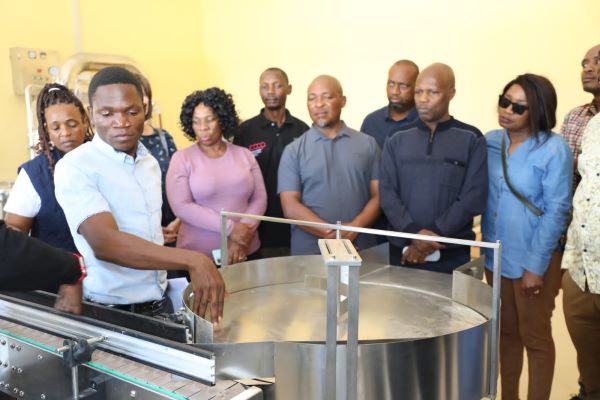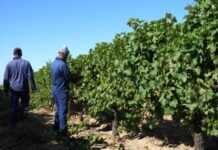
The South African Beekeeping delegation led by the Department of Agriculture and Rural Development Head of Department Mr Thupi Mokhatla engaged with the Ministry of Natural Resources and Tourism (MNRT), Forestry and Beekeeping Division Director, Mr Deusdedit K Bwoyo and officials from the Tanzanian Forestry Research Institute (TAFORI) on strategies to develop the Apimondia industry and to enhance effective management of beekeeping resources for conservation and socio-economic development in the North West Province (NWP). The five-day benchmarking exercise which took place from the 24 – 28 July 2023 shed light on various methods of beekeeping that are used by Tanzania and as a result, has steered the country into becoming a top producer of honey in Africa.
The Tanzanian Beekeeping production regions have been reserves where beekeepers can keep their hives at a fee. To ensure the sustainability of this industry, the law prohibits cutting down of trees within the reserved areas, and surrounding areas benefit from increased protection. To enforce the preservation of its forestry and bee reserves, the country developed a policy that safeguards the protection of its natural and indigenous
resources.
“The National Beekeeping policy developed in 1998 aims to enhance the contribution of the Beekeeping sector to the sustainable development of Tanzania and conservation and management of its natural resources for the benefit of present and future generations. We are currently in the process of developing strategies to increase production of honey and its products in the country,” said Forestry and Beekeeping Division Director, Mr
Deusdedit K Bwoyo.
Currently, the country produces thirty-two (32) tons of honey per annum with an estimated 72 400 beehives of which 70% are traditional beehives such as logs and bark. Despite the transitional beekeeping methods, Tanzania remains the second biggest producer of honey in the African continent and the government maintains the support and development of bee farmers through various grants and funding methods. MNRT has also established a Beekeeping Training Institute that offers a certificate and Diploma in Beekeeping as part of their vision of commercializing beekeeping, enhancing skills development that encourages beekeeping as not only a profession but a business that can contribute to household income and address poverty and unemployment.
The highly successful and informative benchmarking excursion yielded the expected results and subsequently, the DARD Head of Department Mr Thupi Mokhatla encouraged collaboration between the two countries. “We have identified a number of areas where we can collaborate through trade, training, research, and policy development to support our beekeepers in the North West Province. It is important for both countries to maximize
the beekeeping value chain and ensure that we have a competitive advantage in Africa and the world,” said Mr Mokhatla.
The two beekeepers from the North West Province who were part of the delegation contributed to the discussions and shared beekeeping methods practiced in the province and South Africa at large. “This was an eye-opening exercise as we have realized that collaboration can take programmes to greater heights. We’ve also learned that through commitment North West can become the hub of honey production in the future and this
can be done in partnership with our department. As beekeepers in the province, we’d like to extend our gratitude to the department for this excursion, we are so thankful for the support the department is offering to beekeepers and we will share what we have learned in Tanzania with other bee farmers,” said the Chairperson of the North West Beekeepers Association, Kenalemang Mooketsi.







